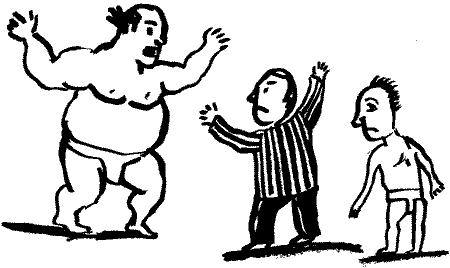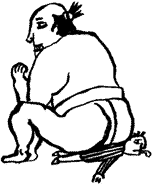Kodak's Blurry Focus
Unlike Motorola, the company relied on courts to fight its trade battles.

Click.
When George Fisher came to Eastman Kodak in 1994, he brought with him a reputation for being a technological visionary and a manager who had figured out what it took to turn a company around. Fisher's tenure at Motorola, one of the great business success stories of the last two decades, had been marked by dramatic improvements in quality, productivity, and innovation, capped by Motorola's reinvention of the cellular-pager market. Similar feats were expected at Kodak.
Click.
Instead, Fisher has floundered. In his first two years, he did do an excellent impersonation of a turnaround specialist, ridding Kodak of the nonfilm businesses--Eastman Chemical and Sterling Winthrop Drug--that it had acquired during the days when conglomeration was all the rage. But unlike such figures as Jack Welch at GE or the late Mike Walsh at Tenneco, Fisher has not been able to turn Kodak's "core competence"--as the management theorists would say--into a consistent moneymaker. On the contrary, Kodak's near-monopolistic control of the U.S. film market has been steadily eroded by Fuji Film's consistently lower prices. Meanwhile, Hewlett-Packard and Canon have moved strongly into the digital-camera market, which seems to be the future of photography as a whole.
Click.
As a result, Kodak has had to lay off 27,000 employees since 1993, and just recently announced yet another restructuring plan. More tellingly, perhaps, Fisher has devoted an inordinate amount of the company's attention to its price war with Fuji. After Fuji cut prices by as much as 30 percent last summer, Kodak began making noises about charging its rival with "dumping" film here. Kodak had already spent much of the last two years pressing a case before the World Trade Organization. It charged Japan with illegal trade practices that kept Kodak out of consumer markets there and gave Fuji a "profit sanctuary" which allowed it to accept lower margins on its sales in the United States.
Although the actual financial implications of the case were not huge, the psychological investment that Kodak had put into the WTO charges was immense. That this was a tactical error was made clear this month, when the WTO vindicated Fuji on all counts. Instead of seeming like a minor blow, the decision was portrayed as powerful evidence that Fisher's magic had failed him. But while dreaming of a trade victory to solve fundamental business problems seems like a dubious recipe for success, there's one important thing to remember: That was exactly the recipe that Fisher had learned while he was at Motorola.

Cl ... Out of film.
T he Kodak-Fuji case was, as innumerable press accounts have pointed out, the most important case to come before the WTO in its two years of existence. Unfortunately for Kodak--and for supporters of free trade in general--it was also a case involving issues that seemed to fall just outside the WTO's jurisdiction. The trade organization was created in 1995 as the third leg of the world financial order, along with the International Monetary Fund and the World Bank. But while the WTO clearly has the authority to rule in tariff cases and quota cases, it doesn't seem to have authority over cases involving more subtle restraints on trade, primarily those created by arrangements between companies rather than by governments. (Click for more on the U.S. role in that restriction.)
The Fuji case dealt with the tightly interlocked relationship between Fuji and Japan's four largest distributors of photographic film and paper, all of whom sold Fuji exclusively. Now, even under traditional antitrust law exclusive relationships are not necessarily illegal, since they make production and distribution more efficient. And clearly consumer companies are constantly in search of such arrangements. McDonald's sells only Coke. Martha Stewart's sheets and towels are sold only at Kmart. Department stores often fashion exclusive relationships with designers. Nonetheless, by being frozen out of the wholesale distribution market, Kodak has been frozen out of Japan's consumer market as well, particularly since Japan has a law restricting the number of large retail stores.

T he problem is that Kodak really had little evidence to show that it was being frozen out by the Japanese government. There was the retail-stores law, and Kodak produced evidence of state intervention to restrict imports, but it was evidence from the 1960s and 1970s. Fuji pointed out that Kodak had a larger market share in some regions of Japan than in others, and that at different points in the last two decades Kodak's market share actually fluctuated quite sharply. If what we're dealing with is a monopoly situation, then it's an imperfect monopoly at best. Given the limits on the WTO's jurisdiction, it was probably unreasonable of Kodak to expect a real victory.
In a sense, though, what's most striking about the WTO case is not that Kodak lost, but that it put so much energy into winning. Kodak's history in Japan is actually a complicated one. In the 1960s and 1970s, the company altered the tint of its film to correspond to Japanese notions of skin tone (and I realize how weird that sounds), and also invented film that could be developed in normal light because so few Japanese photographers had darkrooms. In the 1980s, Kodak opened a major research center in Tokyo, staffed with Japanese engineers, and started a joint venture in which Canon made copiers sold under the Kodak name. The truth about the Japanese market has always been that it is penetrable, but only after tremendous effort. At one point, Kodak appeared to be making that effort. But even as it lost focus in its sales efforts at home, it lost focus abroad.
We've become so accustomed to hearing U.S. companies complain about foreign competition that it's easy to see Kodak's post-defeat recriminations as just more whining. But even if the WTO had to rule as it did, the decision was a blow against open markets and seems likely to increase protectionist sentiment at home. Still, there is something about the Kodak suit that smacks of a company relying on a court to do the work it couldn't do itself. If you're looking for reasons why, consider the transformation of Motorola, from which Fisher came to Kodak. It was accomplished not merely through technological innovation or total quality management, but also through the remarkably effective lobbying efforts of the company's representatives in Washington.
Under CEO Robert Galvin in the mid-1980s, Motorola got protection from Japanese dumping for the U.S. semiconductor industry. It got the Reagan administration to negotiate telecommunications agreements with Japan that were then used to ensure Motorola's access to the cellular market there. And it got the U.S. trade representative to impose retaliatory tariffs on Japanese cellular products until impediments to entering Japanese markets were lifted. These political interventions were essential ingredients in Motorola's rebirth as a high-tech company.
T he point is not that Motorola was on the wrong side of these questions, although dumping accusations too often mean, "They're selling better-quality products cheaper." The point is that Motorola only got its way by relying on a kind of military-industrial-complex approach to trade. (Click for more details on Motorola's campaign.)
Surprisingly, though, Fisher seems not to have recognized how important Motorola's high-powered lobbying efforts were to its success in the trade wars. As a result, he threw Kodak into the WTO case while failing to see how much it mattered that Kodak couldn't stack the deck the way Motorola had. And in a sense, it's this failure to grasp the specificity of Kodak's present problems, this inability to separate Kodak's circumstances from Motorola's, that's characterized all Fisher's efforts over the past two years. The past casts shadows on him that are too long.